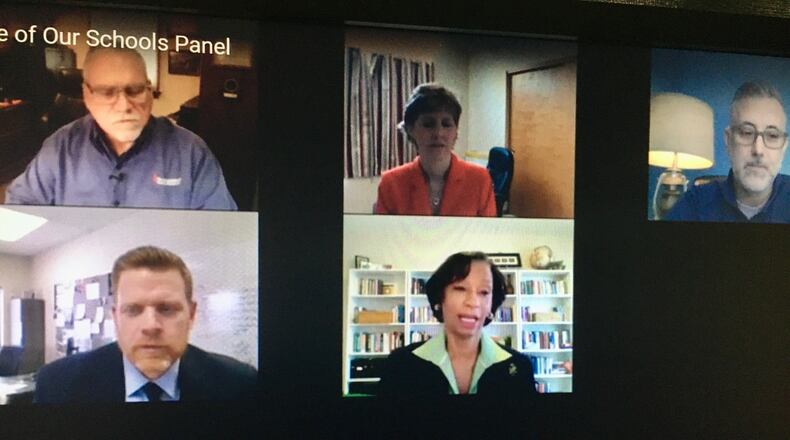“But at the same time I think it’s been a remarkable year when it comes to the connections we’ve made across multiple organizations. It’s a testament to all our teachers and staff and all our business partners … helping us open our campuses,” said Graft.
Butler Tech, which is one of the largest career school systems in Ohio, opened its adult learning classes in May, about a couple of months after the onset of the coronavirus, and opened its high school classes in August.
Joined on the online presentation, which was later posted by the chamber on YouTube video, was Matt Miller, superintendent of Lakota Schools, Monica Posey, president of Cincinnati State Technical and Community College, and Miami Regionals Dean Catherine Bishop-Clark.
Miller said despite the many challenges of the pandemic, his district has been able to “offer in-person learning” as the 16,800-student school system was one of the first to announce prior to current school it would provide live classes.
“I’m also thankful our district was able to pivot and also offer virtual learning (exclusively at home learning) to our families,” said Miller of the more than 4,000 school families who signed up for that mode of learning this school year.
And though few upsides to extraordinary school year, one has been an additional motivation for all Lakota teachers to “get right with technology” in learning how to provide an alternative to live classes when needed, he said.
Clark said “some of what we learned is that we can do things that we didn’t think we were well suited for with technology.”
She predicted “I think education will be transformed by this pandemic and I think business will be the same.”
Panelists did express some concerns about the long-term impacts on students from the isolated learning forced on many by the coronavirus.
“This is not hitting us all equally,” said Clark.
“We had 400 students who were there (Miami regionals) in the fall but did not return in the spring (semester starting in January).”
“We want them to stay in school and we know if they drop out of school, it’s less likely they will come back. We called every one of those students and the reason they couldn’t come back is that mom and dad had lost their job, and they need to make money for the house.”
“Or their little brothers and sisters were at home and they needed to watch them while mom and dad went to work. My biggest concern about this pandemic … is it will be harder for them to return,” especially minority students and those from low income families, said Clark.
“That’s going to have long-term implications for us as a society.”
About the Author

